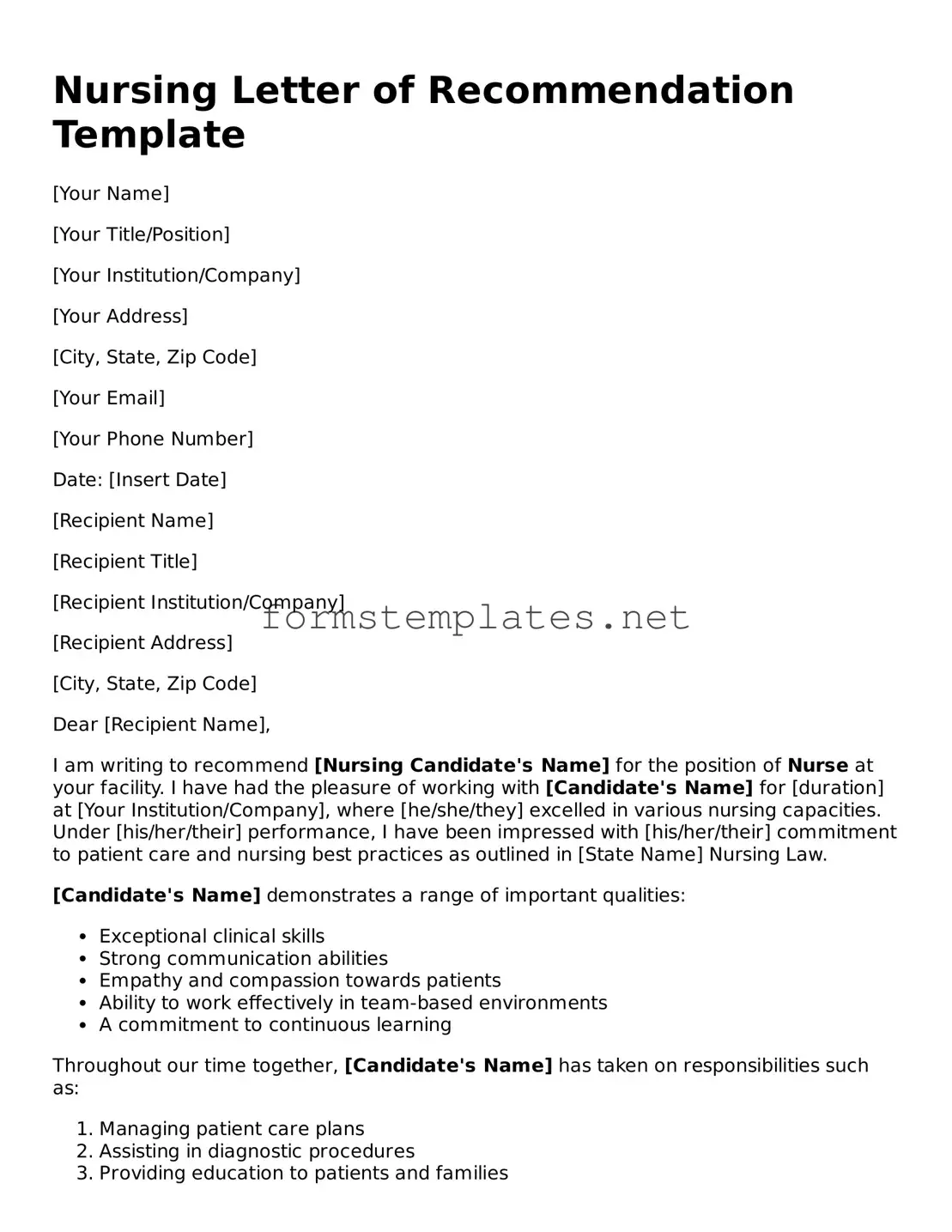Attorney-Verified Nursing Letter of Recommendation Form
The Nursing Letter of Recommendation form is a crucial document used in the nursing profession to provide insight into a candidate's qualifications and character. This form typically includes evaluations from instructors, employers, or colleagues who can attest to the applicant's skills and dedication to patient care. Understanding its importance can greatly enhance the application process for aspiring nurses.
Open Editor Now

Attorney-Verified Nursing Letter of Recommendation Form
Open Editor Now

Open Editor Now
or
⇓ PDF Form
Your form still needs attention
Finalize Nursing Letter of Recommendation online — simple edits, saving, and download.